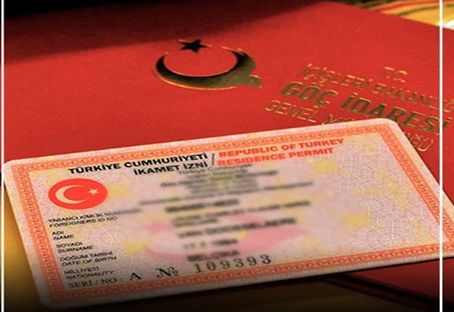In the recent years, acquiring Turkish nationality through investment has become a highly popular issue among many investors from the MENA region, Sub-Saharan Africa and Asia. In the course of almost four years, since the relevant laws were first introduced in 2017, thousands of foreigners most of whom are originally from the Arab countries could acquire the Turkish nationality by doing investment in Turkey.
On the other hand, doing investment is not the only way to acquire the Turkish nationality. Those who live in Turkey for a certain period and fulfill some other requirements may earn the right to apply for the Turkish citizenship. It is called "acquiring Turkish nationality in general way" as per the Turkish laws.
It is the fact that there are particularly hundreds of thousand Arab people who have been living in Turkey especially following the post-Arab Spring events in the MENA region. That is to say, a considerable amount of them must be in Turkey for more or less 5 years, thus might have earned the right to apply for the Turkish nationality in general way. Nevertheless, due to the widespread misinformation within the Arab community in Turkey, many of those people do not realize that they have actually earned this right, or they miss their opportunity after taking wrong steps just because of the lack of sufficient knowledge regarding this topic.
In this Op-Ed article, I aim to elaborate the legal requirements for applying for the Turkish citizenship in general way. I also aim to shed the light on some specific aspects of this topic in order to address the misinformation problems within the Arab community.
There is No Guarantee!
First of all, it must be strongly emphasized that to fulfill all the necessary requirements for applying for the Turkish citizenship in general way, which will be mentioned below, does not grant the applicant an absolute right to acquire the nationality. The final decision is totally at the discretion of the Turkish authorities.
In practice, the Turkish authorities usually accept such applications as long as there is not any public safety/order related concern over the applicant. Furthermore, there are some previous Supreme Court decisions having constrained the arbitrary decision-making ability of the Turkish authorities by favoring the foreign applicants' objections against the baseless rejections by the Turkish authorities.
General Requirements
As per Article 11 of the Turkish Nationality Code, the necessary criteria to be fulfilled by an applicant are as follows:
- Being adult and having mental competence,
- Confirming the intention of living in Turkey with his/her actions
- Being of a good moral character,
- Being able to speak Turkish sufficiently,
- Having a regular income or job to be able to provide for himself/herself, and his/her dependents if there is any,
- Not having a chronic disease which can endanger the public health,
- Not posing any threat for the national security and public order, or not having a serious criminal record or an ongoing criminal proceeding,
- Living as a legal and duly resident in Turkey for consecutive 5 years preceding the application date.
For the point 1, there should not be much confusion. Just it can be noted that the concepts of the adulthood and mental competence are defined according to the Turkish Civil Code.
For the point 2, there is not a specific way to prove the aforesaid intention laid out in the Turkish Nationality Code. That said, there are some examples which are directly mentioned: Moving the center of business & commercial activities to Turkey, buying real estate, applying as whole family, completing the education in Turkey, having a first degree relative who has already acquired the Turkish nationality before are considered as the indicators of such intention.
For the point 3, it must be admitted that it is completely a subjective assessment of the authorities. It can be seen that in practice the authorities have mostly dealt with prostitution or illegal drug use/trade related issues and considered them as the nonfulfillment of the point 3.
For the point 4, the authorities do not seek a fluent level of Turkish. What they expect is for an applicant to attain a sufficient level of Turkish to be able to live on in Turkey. The applicants are invited to an interview by the Nationality Commission whereby their level of Turkish is tested.
For the point 5, the authorities do not ask for an additional document if an applicant has a work permit or his/her own business in Turkey as those circumstances inherently account for the fulfillment of the point 5. It would also be of help to present the document showing the balance of the applicant's bank account, if there is money deposited in that bank account. If the applicant has a regular income arising out of any commercial activity outside Turkey, presenting the balance of the applicant's bank account is a necessity. Unless an applicant has a work permit or his/her own business in Turkey or any provable regular income to his/her bank account, then the authorities would expect an official letter of under-taking by a Turkish person for the applicant.
For the point 6, not any disease but only some specific kind of diseases which can endanger the public health are considered as an obstacle. A comprehensive medical report is one of the required documents for the application and if there is any such disease, that will be shown in that report. It must be noted that only the medical reports by the Turkish full-fledged public hospitals are accepted by the authorities. That is to say, any medical report from a foreign hospital or Turkish private hospitals would not be of use for the application.
For the point 7, there should not be much confusion as the requirement itself is very clear. An applicant can / shall obtain his/her criminal record in Turkey through e-Devlet (e-Government) Portal.
The Most Challenging Point
The point 8 is apparently the most confusing requirement in the eyes of the foreigners. There seems to be a lot of misunderstanding about this point. As per the Regulation pertaining to the Turkish Nationality Code, "living as a legal and duly resident in Turkey for consecutive 5 years" means that an applicant is supposed to having lived in Turkey with the valid residence permits throughout the period of 5 years, and even after the completion of the 5th year, the applicant must still maintain a valid residence permit until the application is made.
It is crucial to state that "the short-term residence permit based on touristic or medical treatment purpose (touristic residence permit), student residence permit, diplomatic residence permit and asylum seeker/refugee permit" are excluded from the list of the valid residence permits which can be the basis of fulfilling the point 8. Nonetheless, there is another crucial exception with respect to these types of residence permits except the touristic residence permit:
If an applicant can obtain another type of valid residence permit (such as work permit or the short term residence permit based on real estate ownership) in the final year(s) of the period of 5 years, then the previous residence permits (except the touristic residence permit) would be taken into account. That is to say, touristic residence permit is never taken into account! But all of other short terms residence permits can result in the right to apply for the Turkish citizenship if the true combination is made.

Another important rule is that an applicant must not have spent more than total of 12 months outside Turkey throughout the period of 5 years. Many sources disseminate the wrong information stating that the maximum limit is 6 months, but for sure the limit is 12 months! That said, there are some exceptions to this rule such as the serious health related problems.
Let us clarify the point 8 with an example:
Let us assume that a foreign resident in Turkey completed 5 years in Turkey as follows:
Student Permit: 24.08.2015-18.07.2019
Short Term Residence Permit (The Specific Residence Permit given to the Fresh Graduate Foreigners in Turkey up to 6 months): 19.07.2019-17.01.2020
Work Permit: 18.01.2020-17.02.2021
Assuming that this resident has not spent more than 12 months outside Turkey between the given dates, he/she earns the right to apply for the Turkish nationality in general way as of 24.08.2020 because:
- 5 years is completed,
- There is still a valid residence permit (work permit) during the prospective application date,
- Student permit alone would normally not be accepted but it is taken into account if it is followed by a valid residence permit as is in this case (work permit).
CAUTION! Let us do a little change in the given example:
Student Permit: 24.08.2015-18.07.2019
Short Term Residence Permit (The Specific Residence Permit given to the Fresh Graduate Foreigners in Turkey up to 6 months): 19.07.2019-17.01.2020
Touristic Residence Permit: 18.01.2020-17.07.2020
Work Permit: 18.07.2020-17.82.2021
Please focus on the bold written part as it is the only change we did.
For as long as one can remember, touristic residence permit is never counted. Then this scenario seems to be a very unfortunate case, doesn't it? Because, if the foreign resident could have got the work permit right after his first short term residence permit, then he/she would have been able to apply for the Turkish nationality. But just because of a touristic residence permit for only a short period of 6 months, all of these years will go to waste. Does it sound fair?
No, it is not. So, the calculation actually works in a different way: If the touristic permit is not for one year but just for 6 months, it does not necessarily break the chain of the 5 years! It will be considered just as a time gap spent outside Turkey and taken into account as a part of abovementioned 12 months-limit. If the applicant has actually not spent 6 months or more outside Turkey, then he/she will still have the right to apply for the Turkish nationality in spite of the existence of the touristic residence permit.
PS: Assignment of or at least getting the consultancy from a lawyer is strongly recommended, because coping with the paperwork may be difficult and the application process can take up to 1,5 years.
The content of this article is intended to provide a general guide to the subject matter. Specialist advice should be sought about your specific circumstances.
